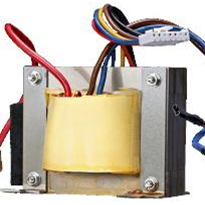When it comes to Australian telecommunications industry standards, four priorities dominate the agenda – network integrity, protection of the user, protection of the network, and the ability for people to make emergency calls.
If it sounds straightforward, it isn't, and being able to interpret the requirements of the standards, the approvals process, the regulatory framework, the telecommunications network itself, and how your product complies, is a job for an accredited compliance test laboratory.
This is the message Greg Caspar, Business Director at Comtest Laboratories, is trying to communicate to an industry that is sometimes only interested in the cheapest way to get their product compliant and into the market place.
Originally part of Telstra, Comtest Laboratories became a private company in 1996, and since that time has serviced the regulated market for compliance, focused on telecommunications, electrical safety, and energy efficiency.
One of the problems, Caspar says, is that when the market opened up to free trade, it wasn't just opened up for materials and equipment, it was opened up for compliance testing as well. This means there are accredited compliance test houses not just in Australia but in all corners of the globe, including, ominously, China.
Complete Service
However before you send your compliance testing overseas to the lowest cost provider, Caspar says you need to weigh up a number of factors, of which cost is only one.
"The great advantage of going to an Australian compliance test house is that we can help them interpret the standards and regulations not just test," Caspar says.
"We offer more than just testing, and a pass or fail. Compliance isn't just the testing, it's the regulatory side of compliance as well. Having met a standard doesn’t mean your product complies for the Australian market. You need to go through a process of proving compliance in accordance with regulations.
"We offer a complete service –testing, compliance arrangements, and we'll organise any necessary approvals.They can't do that (in China) because they don't have the Australian government contacts to talk to, to work through issues."
There are also doubts over how rigorous the testing procedures are in some international laboratories, because things can and do go wrong, and non-compliance can be an expensive mistake to correct.
"When people come to us and say they can get it done cheaper in China, I say 'that's fine' but the key issue you need to consider is your legal liability when things go wrong," Caspar warns.
"We are seeing examples where telephones are electrically unsafe, where metallic components are exposed to the telephone wires directly. (The international testing labs) haven't done the job properly. We have been advised they are paid to make the product pass, not make it fail.
"The costs associated with non-compliance is in the tens of thousands of dollars for individuals and hundreds of thousands of dollars on the company level if it's a major problem – and that's just the fines."
Compliance Folder Management
This is where Comtest Laboratories' Compliance Folder Management service can benefit manufacturers or importers who want to ensure they stay on the right side of both the law and industry watchdogs, the Australian Communications and Media Authority (ACMA), EESS (electrical approvals) and the federal government’s Equipment Energy Efficiency Programs (E3 and GEMS).
Maintaining a compliance folder for ACMA audits is a mandatory requirement for all manufacturers and suppliers of telecommunications, electrical and electronic equipment, and having a company such as Comtest Laboratories manage this process for you, comes with a number of benefits.
"If someone decides to introduce a telecoms product in Australia, first of all they need to understand which of the four regulatory frameworks a product must comply with," Caspar explains.
"Our Compliance Folder Management business helps us to be part of the initial process to review the available information to determine what testing is required as a minimum, and then determine the cheapest way to get their product compliant.
"Then at the end of the process we offer the option to complete all the regulatory paperwork, and approvals as necessary, and we can even hold the compliance documentation for them."
As only an Australian company can register a telecommunications product in Australia, this can be of particular benefit to international companies, because they don't have to open up an office in Australia. Compliance Folder Management is also valuable to any manufacturer who wants assurances as regards their legal requirements.
Legal Responsibility
"Compliance Folder Management helps people understand their legal responsibilities for product compliance in Australia, and it helps them manage their legal liabilities," Caspar says.
"We don’t just say here's the testing, here's the product, we've tested it, go away. We do take legal responsibility for compliance, we have something like 150 companies that we assist from all over the world."
Of course there is always a 'no frills' compliance alternative, but the outcome can be pretty unpalatable if things go wrong.
Take the case of the large PABX manufacturer and the supplier of their IP phones. The phones were tested in Taiwan by a laboratory, that as it turns out, wasn't accredited to test to the appropriate Australian standards. The manufacturer spent thousands of dollars to have the product tested, received a glossy report that was meaningless and had nothing to do with the Australian standard, and the product was still non-compliant.
"If you put that product in the marketplace you are going to have customer complaints, and if they go to the next level and drag it out to the ACMA, you are going to end up with a problem, and possibly fines and recalls," Caspar cautions.
Don't say you haven't been warned.






-160x160-state_article-rel-cat.png)


-160x160-state_article-rel-cat.png)





-160x160-state_article-rel-cat.png)









-205x205.jpg)



